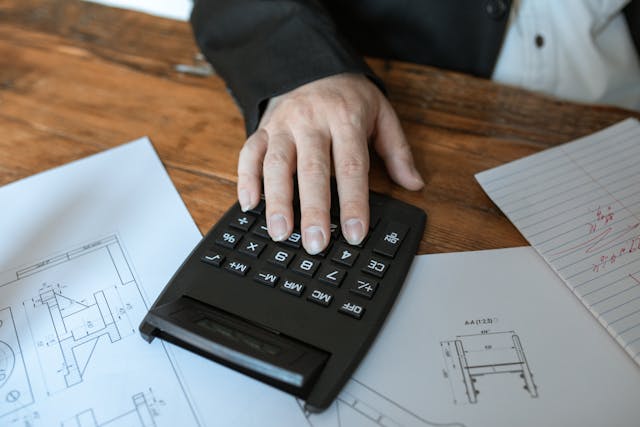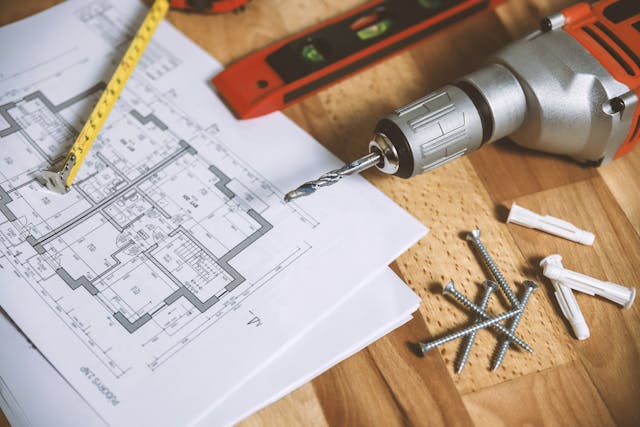What Landlords Need to Know About Depreciation and Property Value
Key Takeaways
- Property Value Drives Profitability: Understanding your property's market value is essential, it impacts rent, refinancing, taxes, and when to sell or hold.
- Depreciation Affects Value (and Taxes): While properties naturally depreciate, this can be used to reduce taxable income, making it both a challenge and a financial advantage.
- Maintenance & Upgrades Protect Your Investment: Regular upkeep, strategic renovations, and smart property management can slow depreciation and boost long-term returns.
Real estate is one of the most reliable ways to build long-term wealth. Property values tend to rise over time, and renting can generate steady passive income, making it a powerful investment tool.
But success isn’t guaranteed. To make smart decisions, you need to understand how to calculate a property's current value and depreciation. These metrics help you evaluate profitability, plan improvements, and decide when to hold, refinance, or sell.
In this guide, Redsail Property Management breaks down everything you need to know about property value and depreciation, so you can invest with confidence.
Why Hire Us?
A Landlord’s Guide to Property Values
Property value is the current market worth of a property, and it plays a key role in setting rental rates, refinancing, taxes, and long-term returns.
Many factors influence value, including location, market demand, property condition, and broader economic trends like interest rates and job growth.
Homes near schools, transit, and amenities typically command higher prices, while outdated or poorly maintained properties can lose value.
There are three main ways to calculate property value:
- Sales Comparison: Based on recent sales of similar properties.
- Income Approach: Based on rental income vs. purchase price.
- Cost Approach: Based on rebuilding costs minus depreciation.
While appraisals offer the most accurate valuation, understanding these methods helps landlords make smarter investment decisions and maximize ROI.

A Landlord's Guide to Depreciation
While real estate is typically known for appreciation, properties can also depreciate over time. Depreciation refers to the gradual loss of a property’s value over the years. Several factors can influence the depreciation of a rental property, including the following:
- Age of the Property: Properties naturally depreciate over time. Older buildings tend to have a lower value due to outdated systems and structural wear.
- Physical Deterioration: Lack of maintenance, poor construction, or delayed repairs can accelerate depreciation.
- Functional Obsolescence: Outdated layouts, lack of modern features, or poor energy efficiency can make a property less appealing.
- Economic Conditions; Declining job markets, lack of demand, or oversupply in an area can reduce property values.
- Neighborhood Changes: Rising crime rates, declining schools, or poor infrastructure can negatively impact value.
- Environmental Factors: Natural disasters, like increased fire or flooding risks, or environmental hazards, can lower a property’s desirability and value.
Depreciation is usually calculated, mainly for tax purposes, using standardized methods, such as the straight-line method for rental properties, where the property (excluding the land where it sits) is written off evenly over 27 years.
While depreciation reduces the market value of your investment, it also has some benefits for landlords. The IRS allows investors to deduct depreciation from their taxable rental income each year, reducing their overall tax liability and providing significant savings.

How to Slow Down Property Depreciation
Real estate depreciation is normal up to a certain degree. After all, day-to-day activities and time tend to affect the condition, and thus the value, of a residential property.
However, this doesn’t mean that all real estate investments are bound to fail! You can actively improve the value of your home and slow down depreciation. Here are some tips to help you:
- Improve the Curb Appeal: First impressions matter a lot in real estate. If your property looks old or poorly maintained on the outside, no renter or buyer will take the time to see what the inside looks like. By investing in quality landscaping and a fresh coat of paint, you can significantly enhance the appeal and value of your home.
- Don’t Skip Property Maintenance: Ignoring or postponing upkeep will only result in bigger, more expensive repairs down the line. By regularly maintaining your property, it’ll be easier to keep it in good condition and maintain its value over time.
- Address Repairs Quickly: Even the smallest of leaks can turn into a big, costly problem if left unattended for long enough. Rather than waiting for problems to escalate, you should address repairs as soon as possible to keep your property appealing and functional.
- Invest in Upgrades and Renovations: An outdated property is less appealing in renters’ eyes. By investing in the right renovations, you can significantly increase the value of your investment. Popular upgrades among tenants and home buyers include a modern kitchen, new fixtures, new kitchen appliances, hardwood or vinyl flooring, and smart home features.
- Keep Up with Market Trends: The key to a successful real estate investment? Giving tenants (and buyers) what they want. Following local market trends will allow you to plan for renovations and adjust your prices to ensure early on to ensure your property remains profitable year-round.

Partner With a Property Manager
An experienced property manager can streamline the maintenance process, as well as address repairs more quickly. This not only saves you time but also makes it easier to keep your property in good condition.
Learn More About Our Pricing
Bottom Line
Whether you’re planning to invest in real estate or are a seasoned investor, you should take the time to learn about depreciation. It’s normal for properties to lose value over the years, due to neglect, lack of renovations, or the passing of time.
Staying on top of depreciation will help you make more informed decisions, like reinvesting in upgrades, refinancing, and how to optimize tax deductions. This way, you’ll be better equipped to protect and maximize the long-term value of your rental investment.
Want to learn how to enhance the value of your Newport News rental? Contact Redsail Property Management!